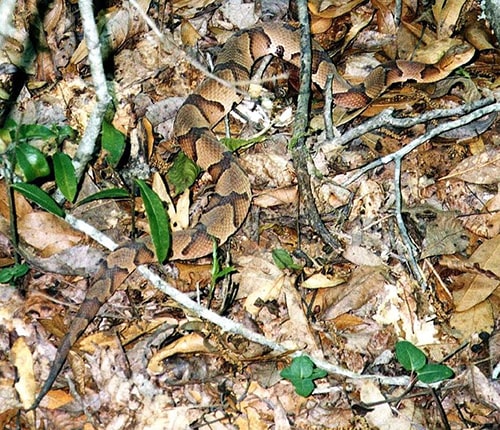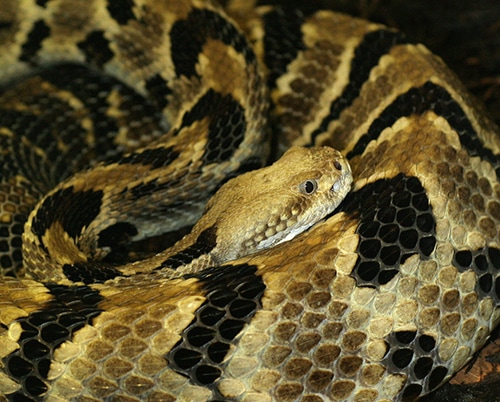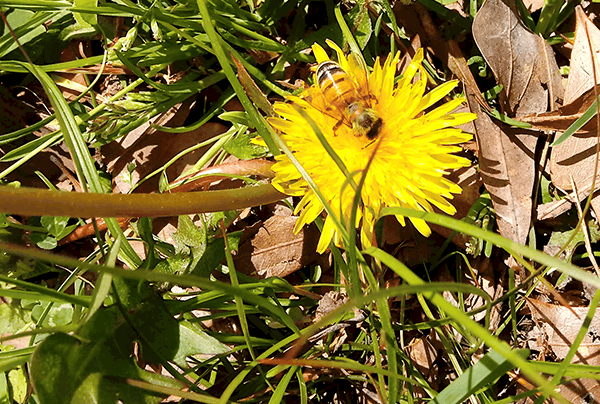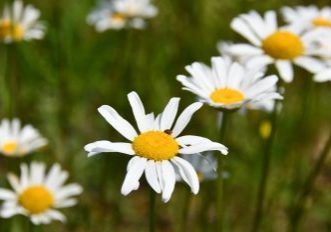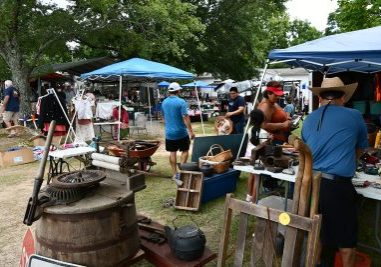What are the best Spring and Summer Outdoor Safety Tips in Alabama? Spring is one of the best times of the year to see new life in the woods, rivers, creeks, and ponds. There are many safety threats in the Alabama woods and if you are prepared for your venture in the woods you will have a safe trip. From dangerous snakes, to a simple bee sting, to rashes from poison, the Alabama woods offer plenty of danger for those who venture to hike or fish.
What are some great Spring Outdoor Safety Tips?
- Spring And Summer Tip #1 –Poisonous Snakes
- Spring And Summer Tip #2 –Avoid or Remove Ants
- Spring And Summer Tip #3 –Be Vigilant of Ticks
- Spring And Summer Tip #4 –Alabama Poison Oak/Poison Ivy/Poison Sumac Prevention and Care
- Spring And Summer Tip #5 – Avoid Alabama Red Wasp/ Hornets/Yellow Jackets/Bees
- Spring And Summer Tip #6 –Avoid Big Mean Alabama Mosquitoes
- Spring And Summer Tip #7 –Avoid Rushing Water/Mud after Heavy Alabama Spring Rains
- Spring And Summer Tip #8 –Remove Nuts/Sticks/Yard Debris
- Spring And Summer Tip #9 – Spiders/ Brown Recluse Spider/Black Widow Spider
- Spring And Summer Tip #10– Alabama Scorpions
Growing up in Alabama, it isn’t uncommon to see a copperhead near a creek or exploring after nice rain. Copperheads like to explore after a rain and can often be found around porches or flower gardens. Smaller copperheads can be hard to see if you have brown leaves around the yard. If you live near the edge of the mountain or in a heavily wooded area, your chances of seeing a snake will be increased greatly. There have been some huge rattlesnakes and copperheads found in Alabama.
Spring And Summer Tip #1 Poisonous Snakes
The best chance to avoid a snake in the yard is to prevent snakes from finding a nice place to relax. The chances are you will not see a snake if you keep your property in order. Use caution and check your property for any poisonous species of snakes including copperheads and rattlesnakes. Copperheads are known to like cool areas with good camouflage, either old leaves or piles of wood or tree limbs will give the snakes a perfect habitat. So be sure to clean any debris from under your porch and steps and remove any wood or piled of limbs.
Keep your yard clear any tall grass that can give a snake a cool place during the day. Thick landscaping and Long grass provides the perfect habitat for snakes. Weed eating is a great way to keep your yard in shape. Remove any standing water around ditches and drains. If your steps are open at the bottom i would suggest that you take a board and cover the area. If you have any holes or cracks around your home, fill them with insulating spray foam sealant. Look under doors and you have a crack use weather stripping to seal them. Be sure to look under any wood piles for snakes and spiders.
A List of Venomous and Non-Venomous Snakes of Alabama
Treating a Snake Bite-How to prevent, recognize and treat snake bites
Spring And Summer Tip #2 /Avoid or Remove Ants
Ants can cause serious reactions and even infections and are found everywhere in Alabama. Alabama entomologists have documented and recorded about 170 species of ants, which 57 species are common. Growing up in Alabama playing outside, a fire ant bite would be a common occurrence. An allergic reaction to a fire ant can be deadly if you have an allergy to them. They can cause swelling and even infection to some. Early spring is a great time to walk around your yard and look for fire ant mounds. You need to spray the ant mounds and reduce the numbers, every few weeks, recheck your yard to see if you have new mounds. Also spraying around your home will also help keep ants out of the house.
How to prevent ants from entering your area
- Be sure to caulk any open holes or cracks
- Use Deterrence. Use common household items
- Vinegar, Coffee Grounds, Spices and Herbs, Peppermint Oil, Vinegar, Chalk and Baby Powder.
- Dish Soap around areas where ants may hang out. Under baseboards, around the house and doors, you can also apply soap and water directly on ant mounds around the yard.
- feed the queen by using workers to bring her special food, Cream of Wheat works very well.
- Apply diatomaceous earth (DE) to ant mounds.
- Dr. Bronner’s Soap is also a great option to pour on mounds
- Baking Soda & Powdered Sugar works great to pour on mounds
- ground cinnamon around doors and areas where they are coming in
The Best Ant Killer Recipes You Can Make
13 natural solutions for killing and deterring ants
7 Ways to Get Rid of Ants Naturally
How to Get Rid of House and Carpenter Ants Naturally
10 Most Effective Ways to Get Rid of Ants from Your Home & Garden
Spring And Summer Tip #3/ Be Vigilant of Ticks
Just yesterday I was in the woods for just 30 minutes, came home and discovered that a tick was crawling on my shirt. The tick was quickly knocked to the ground and destroyed. If you grew up playing in the yard or woods in Alabama, you most likely have had tick bite and it not let go.
Experts claim that you can absolutely get Lyme disease in Alabama! According to experts 20 to 30% of those who are infected with Lyme bacteria have no complications or symptoms at all.
Here is a great older article ‘Very bad tick year’ expected for Alabama in 2017, and climate change a factor
So, you get home and find a tick clamped down on your skin! This was common as an active outdoorsman, go fishing and come back with a new friend, the old Alabama tick. Or say you go digging ginseng in early fall, you will for sure pick up a tick or two! The worst thing you can do is panic and pull the tick off, you will leave the mouth in your skin.
How do you remove a tick?
Well hopefully you have prepared and you have your outdoor toolbox with you. Or you have tools in your fishing box.
Fine-tipped tweezers are perfect for removing ticks and must have in your toolbox year around.
First use the tweezers and grasp the tick with a steady hand, do not pull too hard or fast, gently. Pull straight up! If the tick does not want to release just let it sit for and minute and get a needle. Use the tweezers to hold the needle and heat it up red hot! Carefully touch the tick with the hot needle and the odds are he will release, but not always!
If you get him to release be sure to keep him, just in you need to help diagnose a tick-borne disease.
Be sure to clean and disinfect the area bitten very good with soap and water, iodine scrub, and rubbing alcohol
Spring And Summer Tip #4/ Alabama Poison Oak/Poison Ivy/Poison Sumac Prevention and Care
Your best bet to stay safe from various poison plants is to not touch and avoid them. Poisons plants can be found throughout Alabama woods and yards and can cause serious rashes. Poison oak, Poison Ivy and Poison Oak are common to come across while hiking or fishing and can leave a nasty rash. If you believe you have come into contact with the poisonous plants you need to wash away the urushiol oil which causes the reaction. Rashes from 24 to 72 hours after contact in most cases.
Use lukewarm water and soap as soon as possible to remove the oil. If you do not have soap and water with you, use alcohol wipes or rubbing alcohol to clean the area. You can treat as rash with Calamine lotion which is applied directly to the area, hydrocortisone or diphenhydramine can help reduce itching.
Spring And Summer Tip #5/ Avoid Alabama Red Wasp/ Hornets/Yellow Jackets/Bees
No matter where you go in Alabama you will come across Bees, wasp, yellow Jackets and Hornets. There is nothing worse than getting stung in the neck on a hot Alabama afternoon. I have been stung a few times by red wasp and it feels like getting shot in the neck. Always keep Benadryl allergy in your bag or for those with severe allergies keep your EpiPen® within reach.
The most common wasp in Alabama is the The European wasp! European Hornet stings can inflict a serious string due to the large amount of acetylcholine, much more potent than the typical wasp. We also are more likely come into contact with this wasp more, it enjoys making a nest near homes.
How to protect yourself against wasp in Alabama?
If you stir wasp up, your best bet is to get out of the area for a while.
Plant wasp repellent plants. Plants such as: Lemon thyme, Lemongrass (contains citronella), Lavender (flies can’t stand dried lavender), Mint, Basil, Rosemary. Wear long sleeves when working in the yard and garden
How to Avoid Bee and Wasp Stings
Why wasps attack and how to avoid them
Spring And Summer Tip #6/ Avoid Big Mean Alabama Mosquitoes
Growing up in Alabama one thing for sure you will experience is mean biting mosquitos. During the summer months they can be extremely aggressive in north east Alabama. Just minutes outside during summer and fall you can claim victim to many mosquito bites. The American Mosquito Control Association published that over one million people worldwide die from mosquito-borne diseases per year. Alabama is home to around 60 various mosquito species. The southern house mosquito and the Japanese encephalitis are known to carry diseases. The Asian tiger mosquito is the most common type in Alabama
Your best bet to protect yourself from nasty Alabama Mosquitoes is to be prepared for your outdoor activities.
How to keep mosquitoes away
- Remove standing water if possible, search the property for stagnant water and remove it. Add used coffee grounds to any stagnant water to repel mosquitoes and kill eggs
- Cover or empty your pool when not in use.
- Keep your gutters and drains clean of debris
- Keep your yard and home free of debris and items they can use
- Keep fresh water in your birdbaths, replace the water once a week.
- Keep mosquito larvae fish in your decorative pools.
- Plant plants that repel them like: Lemon balm, Lavender, Citronella, Catnip, Basil, Marigolds
- An environment-friendly way to remove mosquitos is lighting Camphor and leaving it for 30 minutes to drive them out.
- Make a homemade mosquito trap
- Homemade Citronella Candles around the house and light them and let them burn 20 minutes before your outdoor experience.
- Make your own mosquitoes lotion, use lavender essential oil (25 drops) and mix it with olive oil or vegetable oil and run onto skin, Apply Neem Oil
- Make a homemade mosquito trap
Spring And Summer Tip #7/ Avoid Rushing Water/Mud after Heavy Alabama Spring Rains
There is no doubt one of the best times of the year to see some awesome Alabama Waterfalls is spring. The heavy spring rains can fill up small creeks and cause rushing whitewater and cause the rivers and create beautiful waterfalls. Often during the summer months, the Alabama waterfalls will dwindle down to a trickle. You can find some awesome waterfalls in spring and fall in Alabama.
Slippery moss-covered rocks can be a hazard that can cause much damage to you or your camera if you are chasing the spring rain waterfalls in Alabama. Be sure to wear good hiking shoes or boots with good traction. If you are trying to get that shot that nobody has gotten, be sure to tie off with a rope if you are near an edge or overlook. Alabama literally has waterfalls all over the state throughout the parks as well in folk’s backyards.
Spring And Summer Tip #8/ Remove Nuts/Sticks/Yard Debris
Acorns fall to the ground in late fall and during the winter and spring can create an unseen danger. You don’t really think about sliding on acorns until it is too late. When you step on acorns they are like stepping on rollers and the chances are you are going to hit the ground. So be sure to remove acorns from your yard and other yard debris.
Spring And Summer Tip #9/ Spiders/ Brown Recluse Spider/Black Widow Spider
Alabama has 63 unique species of spiders and there are two that are a must to stay away from. The two most dangerous spider bites in Alabama is the Brown Recluse Spider and Black Widow Spider. The fact is you can get bitten anywhere from a spider because they enjoy all of finds of habitat. It is common to see a black widow spider making a nest around the house and yard. They love debris where they can crawl under like plants pots, wood, boxes, rocks, behind furniture.
-Black Widow Spider
A Black Widow Spider bite produces a neurotoxin that can be deadly. It is possible a critically severe reaction can occur after a black widow bite and you must seek medical help immediately.
When envenomation occurs, you may experience severe pain, vomiting, nausea, spasms, and muscle cramps from the Severe pain, vomiting, nausea, spasms, muscle cramps can be caused from this venom. Elderly adults and children are at a greater risk of experiencing a reaction from a poisonous spider bite.
-Brown Recluse Spider
The Alabama Brown Recluse Spider can create a nasty deadly bite a create much pain and sickness. To reduce the chances of a Brown Recluse bite keep your property and storage areas clear of clutter and clean.
The Brown Recluse Spider loves dry, warm, dare places such as porches, barns, basements, as attics, closets, woodpiles and even behind furniture. If a Brown Recluse Spider occurs, you will know soon. 4 hours after a bite you may experience severe pain vomiting, nausea, myalgias (muscle pain) including spasms, including a fever. You may experience necrosis (death) of skin and subcutaneous fat and severe destructive necrotic lesions which isn’t common. Everyone reacts differently to a spider and the outcome may vary depending on someone’s immune condition and health.
If you are bitten: If possible safely collect the spider in a plastic bag and carry to the doctor with you for species identification since a bite can be difficult to diagnose in some cases.
Spring And Summer Tip #10/ Scorpions
Scorpions can be found throughout Alabama and some areas much more common than others. If you spend time in the woods digging ginseng most likely you will come across some scorpions. They love laying under leaves and around rocks in the Alabama woods.
Alabama is home to three types of scorpions and non-are lethal in most cases. There are two Native Alabama scorpions and are rather small compared to scorpions from other regions. The sting is often compared to a wasp sting and usually you sting area will feel much better after 30 minutes,
The Hentz Striped Scorpion (2 inches (5 cm) or less in length.) is found more toward the southern coastal regions of Alabama. The Southern Unstriped Scorpion, also known as the “Southern Devil Scorpion” is found in the mountainous Appalachians and Piedmont regions in north Alabama.
How to get rid of scorpions in Alabama?

